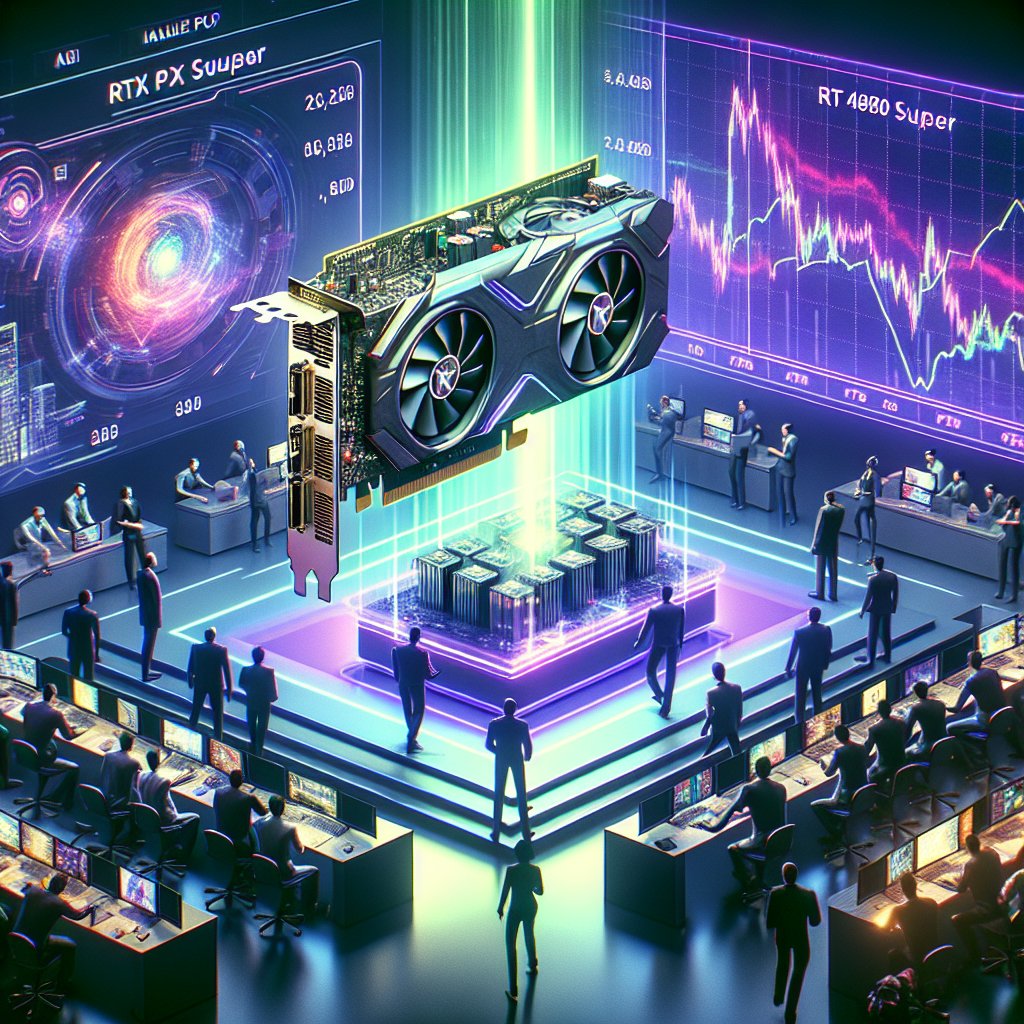Content created by AI
Nvidia Supercharges PC Gaming with AI-Enhanced RTX 4070 and 4080 Super Cards
The tech world has its eyes riveted to Nvidia Corp., a titan in the chip-making industry known for their dominance in AI-powered data centers, as it breaks new ground with its latest product line aimed at revamping the personal computer landscape. Nvidia's reveal includes three new desktop graphics cards that boast significant enhancements, especially designed to accommodate the burgeoning realm of "AI PCs."
Marked as superior iterations of their existing lineup, these graphics chips are engineered to allow users to fully embrace the power of artificial intelligence right on their personal machines, substantially reducing the need to tap into internet-based remote services. Nvidia's announcement, made during the high-profile CES trade show, not only highlights new technological developments but also enters the market at an aggressive price point that undercuts much of the competition, signaling a strategic price-performance shift in the PC hardware space.
Enthusiasts and professionals alike will be eager to check out the new GeForce RTX 4080 SUPER, which promises more processing cores and faster memory, catering to a market that craves oomph and fluidity. In practical terms, this translates to the card running image generation software, such as Stable Diffusion XL, a remarkable 1.7 times faster than its predecessors, also allowing 4K ray-traced gaming to flourish in rich detail. The RTX 4080 SUPER, along with the more accessibly priced RTX 4070 Ti SUPER and RTX 4070 SUPER, are not just hardware upgrades but part of an ecosystem that includes software enhancements and AI model optimizations developed by Nvidia.
Given Nvidia's bold claim to a superior product boosted by Justin Walker, Nvidia's vice president, stating these new offerings will considerably outperform those powered by rivals like Intel, the industry is poised for a shakeup. This competitive edge is reflected in Nvidia's stock price, which saw a substantial jump on the announcement day, reinforcing the company's industry-leading status and its recent market value surge past the $1 trillion milestone.
This introduction is timely, as the pandemic-prompted sales boom has waned and PC shipments have plummeted, nudging chipmakers to innovate and entice upgrades. By highlighting AI and RTX technology's integration into over 500 applications, from gaming to professional image editing, Nvidia is not just releasing new products but facilitating a transformative experience for end-users.
The Santa Clara, California-based company, being the top dog in GPU manufacturing, taps into a market where gamers often spend lavishly for the promise of unmatched visual and performance enhancements, setting itself apart from its main competitor AMD and others like Intel, who also provide CPUs with integrated graphics.
Nvidia has cleverly navigated the complex export regulations that govern AI chip technology, ensuring its latest wares comply and sidestepping the stumbling blocks that caught their GTX 4090 in regulatory nets. The stage is set for a new era of AI-powered computing with cutting-edge graphics and responsive performance at the core of PCs, both for unparalleled gaming and professional workflows.










